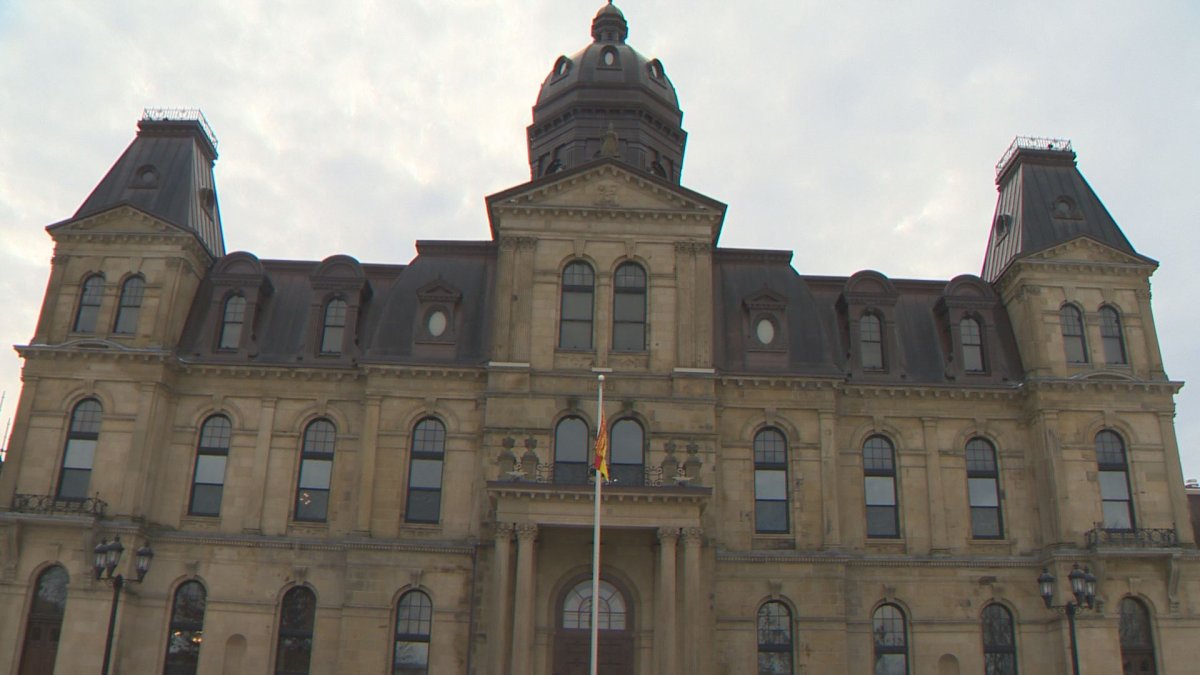New Brunswick opted out of its portion of a fund intended to help municipalities cover transit operational expenses, confirmed a spokesperson for the federal government.

The $1.8 billion dollar fund is part of the $19 billion Safe Restart Agreement reached by the federal government and first ministers last week. New Brunswick will be receiving $200 million as part of the agreement, $40 million of which will be going to municipalities.
READ MORE: New COVID-19 deal with federal government provides $200 million for New Brunswick
A further breakdown of the funding shows that $60 million will go towards PPE acquisition, $60 million to testing and contact tracing efforts, $24 million to health care capacity and $15 million to each of childcare capacity and vulnerable populations. Additional spending breakdowns are not yet available.
The $1.8 billion transit fund is separate from the $2 billion earmarked to help municipalities meet operating costs over the coming months. Both funds require a matching investment from the provincial government.
Hearing that the provincial government may have left money on the table is difficult to hear in Saint John, a city that was already facing tough budgetary decisions before finances across the city were ravaged by COVID-19.
READ MORE: New Brunswick mother who left job due to COVID-19 ineligible for provincial emergency funds
“We’ve cut to the bone,” Darling said.
- Iran fires air defences at military base after suspected Israeli drone attack
- Carbon rebate labelling in bank deposits fuelling confusion, minister says
- Conservatives ask interference inquiry judge to rule elections were flawed
- Joly says Canada is monitoring escalating Iran-Israel tensions ‘closely’
“We’re not doing flowers, we’re struggling to replace light bulbs, we’re running an additional deficit, we’ve reduced our transit system. I mean I’m not sure where else we can cut, we need some operational support.”
Saint John Transit is forecasting a deficit of $505,000 by year end according to a presentation made to the city’s Finance Committee on Tuesday. This is after the operating budget has already been cut by 25 per cent with service hours being cut to 26.6 per cent of normal. Additional cuts are being explored with the view to decrease the operating loss by half to $250,000.
“We have little capacity already in a tough circumstance to absorb that kind of loss,” Darling said.
“We were certainly looking to both levels of government for support.
Further north in Fredericton, mayor Mike O’Brien says the city will be able to take the hit to revenues caused by the pandemic without cutting transit, but the money will have to come from somewhere.
READ MORE:New Brunswick’s top doctor says coronavirus response not ending ‘any time soon’
“The city of Fredericton is projecting a year end deficit on transit of about $770,000 and it’s all revenue based because of COVID restrictions, so we could certainly use some assistance,” O’Brien said.
“We will not have to cut transit: that’s an essential service. We have enough different programs that we could look at to try and offset the funds, but that means something else doesn’t get done.”
According to premier Blaine Higgs the money going to municipalities as a result of the Safe Restart Agreement is flexible enough that cities will be able to spend it where they see fit.
All told $80 million will go to New Brunswick’s municipalities, but how and where it will be spend still needs to be determined.
“There’s a certain amount of money that’s going to municipalities that we can look at where it goes and what makes the most sense and we match those dollars and municipalities will define what makes the most sense for them and we’ll work with all of them on that,” Higgs said.
But some opposition leaders are left wondering why the government didn’t look to access the fund specifically created to address the operating deficits of municipal transit departments.
“It doesn’t make any sense to me that he left that money on the table,” said Green party leader David Coon.
“It’s an integral part of their budget so you can’t divorce it from the rest of their budget, it’s a public service they offer that’s absolutely essential for those living check to check, for seniors who increasingly need to get around without a car.”
Liberal finance critic Roger Melanson calls the decision “poor leadership.”
“This is just further proof that the Higgs government refuses to invest any provincial money into rebuilding our economy, regardless of how important those funds could be,” he said.
“The minute that there’s provincial dollars to be invested in partnership with the federal government, Blaine Higgs backs off.”




Comments